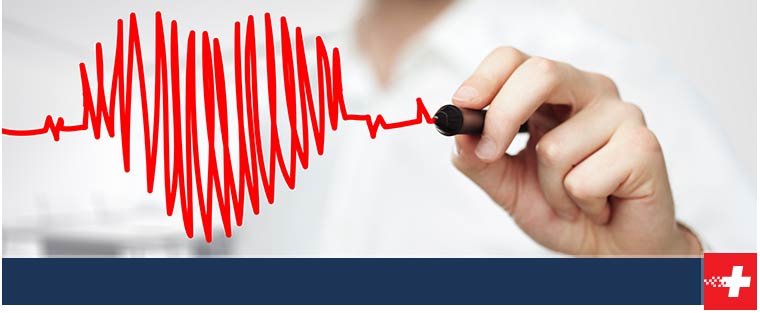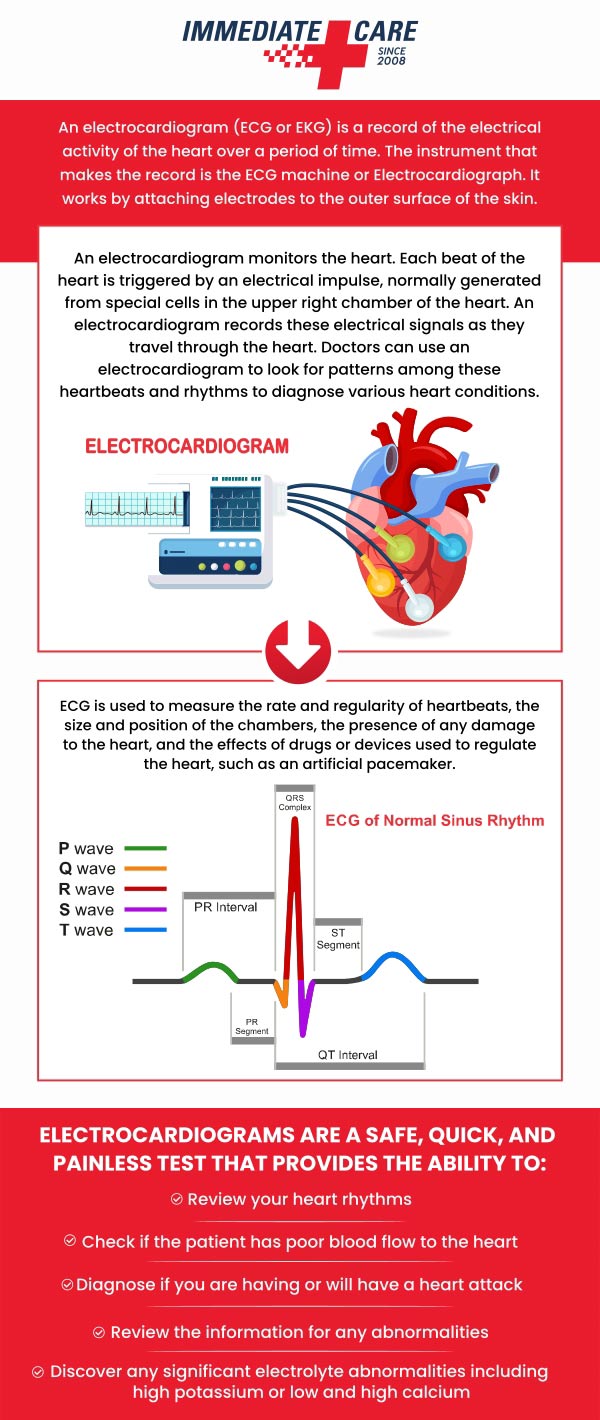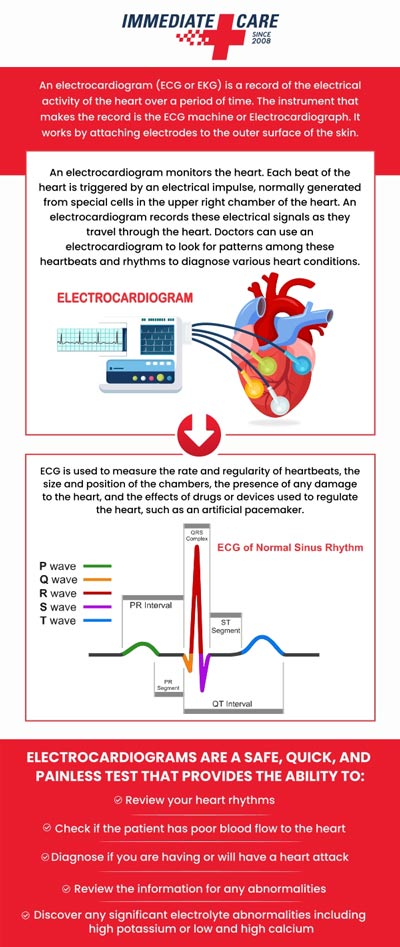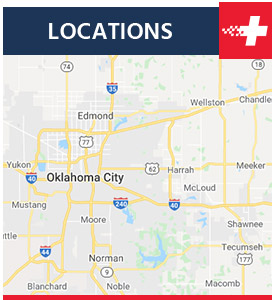Signs and Symptoms That You May Need an EKG Test Q&A
Do you have any symptoms of a heart condition such palpitations, rapid heartbeat, or chest pain? An EKG is a non-invasive, painless test that records the electrical activity of your heart. An EKG may be required if you experience chest pain, palpitations, difficulty breathing, dizziness, fainting, or a family history of heart problems. EKGs promote heart health by identifying irregularities and assisting in the early detection and treatment of any cardiac disorders. For more information, contact us or schedule an appointment online. We have convenient locations near you in Oklahoma City, OK.




Table of Contents:
What does an EKG test for?
Who is a good candidate for an EKG?
What is the difference between an EKG and an ECG?
What are 3 common heart conditions that can be diagnosed with an EKG?
An electrocardiogram (EKG) is a common test used to detect heart problems by measuring the heart’s electrical activity. Some of the specific things an EKG test can detect include:
Irregular heart rhythms: EKGs can detect irregularities in your heart’s electrical activity, which may be a sign of a heart condition such as arrhythmia.
Heart attacks: EKGs can detect heart attacks, by showing changes in the heart’s electrical activity.
Congenital heart defects – Congenital heart defects and abnormalities in the heart’s structure can be identified with an EKG.
Coronary artery disease: EKGs can show signs of decreased blood flow to the heart muscle, which may indicate coronary artery disease.
Effectiveness of medications or devices: Tools such as EKGs are used to monitor the effectiveness of heart medications or devices such as pacemakers.
Overall, an EKG is a valuable tool for diagnosing and monitoring a wide range of heart-related conditions. If you are experiencing symptoms such as chest pain or shortness of breath, seeking prompt medical attention is advised.
An EKG is a safe and non-invasive test used to identify the root causes of symptoms related to the heart. Some factors that make you a suitable candidate for an EKG include:
History of heart disease: If you have a family history of heart disease or have been diagnosed with a heart condition in the past, regular EKGs are recommended to monitor your heart health.
Chest pain or discomfort: EKGs are recommended for those experiencing chest pain or discomfort.
High blood pressure: If you have high blood pressure, an EKG will help your healthcare provider assess your risk of heart disease.
Shortness of breath: EKGs are used to investigate symptoms such as shortness of breath and rule out heart-related causes.
Irregular heartbeat: Irregular heartbeats can be detected with an EKG. The tool allows your healthcare provider to assess the cause of the irregularity and monitor your heart health.
There is no difference between an ECG and an EKG. Both terms refer to the same test, which measures the electrical activity of the heart. EKG is the abbreviation for electrocardiogram, while ECG is the abbreviation for electrocardiograph. These terms are interchangeable.
During an EKG/ECG test, small electrode patches are placed on the chest, arms, and legs to detect electrical signals produced by the heart. The electrical activity is recorded and displayed on a monitor. Data from this analysis is used by the physician to diagnose heart conditions such as arrhythmias, heart attacks, and heart disease.
An EKG/ECG is a non-invasive and painless test that only takes a few minutes to complete. EKGs are commonly used in routine medical check-ups, and can be performed at an urgent care center near you. If you have any concerns about your heart health, speak with a member of our team to determine if you should receive an EKG/ECG screening.
The three most common conditions diagnosed with an EKG are:
Arrhythmia: An irregular heartbeat, or arrhythmia, can be detected with an EKG. It can show whether the heart beats too fast, too slow, or irregularly.
Heart attack: An EKG accurately identifies heart attacks by illustrating changes in the heart’s electrical activity. This is very crucial as early detection leads to prompt treatment and prevents further damage to the heart.
Heart abnormalities: EKGs are used for the diagnosis of heart abnormalities by recording changes in the heart’s size and function. This tool is used to determine whether the heart is enlarged or weakened.
If you’re experiencing any symptoms of heart problems, such as chest pain, shortness of breath, or palpitations, it’s important to seek medical attention promptly. An EKG is a quick, non-invasive test that can be done at an urgent care center near you to provide valuable information about your heart health. For more information, contact us or schedule an appointment online. We have convenient locations near you in Oklahoma City, OK.
We serve patients from West Moore OK, Norman (HealthPlex) OK, Norman (24th) OK, Edmond OK, Yukon OK, I-240 & Sooner RD OK, Tecumseh OK, and Bethany OK.


Additional Services You May Need
▸ Urgent Care Services
▸ Illness + Injuries
▸ On Site Lab + X-Ray
▸ Helpful Health
▸ Motor Vehicle Accidents
▸ Drug Testing
▸ MRO
▸ UTI Treatment
▸ Employment Physicals
▸ Workers Comp
▸ Strep Throat Treatment
▸ Pregnancy Testing
▸ Blood Pressure Testing
▸ Urinalysis
▸ Mononucleosis Treatment
▸ Suture Removal
▸ Respiratory Syncytial Virus
▸ OccMed








